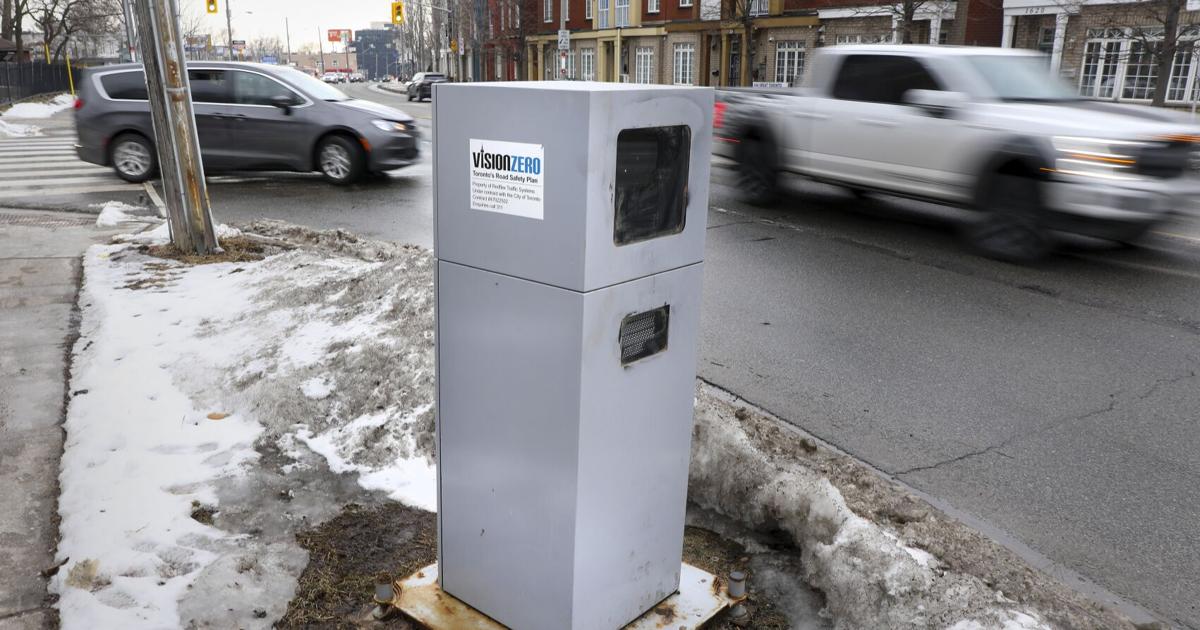evandyk
Senior Member
TTC stops especially need much better clearing. Any time you get more than a few cm of snow it gets basically impossible for anybody not completely able-bodied to board a streetcar/bus.
I know its taxing, but write a second email, and this time, include the info indicating that polling data is not required.
Alternatively, by-pass that office and go to the Vision Zero staff; use the words in the policy 'vulnerable population' in reference to your desire for improvements near the health centre.
If the corners aren't defended/hardened, vehicles will just turn onto or over these bulb outs.

Because in many cases, the person driving the car with obscured plates is likely to be another cop?I can appreciate why police officers would not waste their time and safety to pull over a driver just because the plate was obscured.
Number plate violations are not 'moving violations'. It's do-able now under the HTA *if* the enforcement person is sworn as a Provincial Offences Officer; otherwise it would take some legislative tweaks. One of which would be allowing a non-parking violation to be included in the type of offence notice (aka 'ticket') that is slipped under the wiper. Right now, that is restricted to parking violations. All do-able with the right motivation.^Photo radar and automated enforcement generally might have more traction if the practice of covering license plates is discouraged more.
I would like to see this delegated to municipalities so that parked cars can be ticketed for improper display of license plates.
I can appreciate why police officers would not waste their time and safety to pull over a driver just because the plate was obscured.
While the driver (and not the owner) may be argued to be the one who should be held accountable for vehicle condition, we have pretty much gone past that argument with traffic enforcement generally -and license plate display is not really a moving violation. So give it to Parking Control Officers to enforce.
- Paul
Number plate violations are not 'moving violations'. It's do-able now under the HTA *if* the enforcement person is sworn as a Provincial Offences Officer; otherwise it would take some legislative tweaks. One of which would be allowing a non-parking violation to be included in the type of offence notice (aka 'ticket') that is slipped under the wiper. Right now, that is restricted to parking violations. All do-able with the right motivation.^Photo radar and automated enforcement generally might have more traction if the practice of covering license plates is discouraged more.
I would like to see this delegated to municipalities so that parked cars can be ticketed for improper display of license plates.
I can appreciate why police officers would not waste their time and safety to pull over a driver just because the plate was obscured.
While the driver (and not the owner) may be argued to be the one who should be held accountable for vehicle condition, we have pretty much gone past that argument with traffic enforcement generally -and license plate display is not really a moving violation. So give it to Parking Control Officers to enforce.
- Paul
Police are hawks looking for obstructed plates in one location in Ontario - the 407. There is a reason for that.
As automated enforcement increases, we will see more plate obstruction. And, unless police actually do anything about it, the practice will increase.Photo radar and automated enforcement generally might have more traction if the practice of covering license plates is discouraged more.
I would like to see this delegated to municipalities so that parked cars can be ticketed for improper display of license plates.
I can appreciate why police officers would not waste their time and safety to pull over a driver just because the plate was obscured.
The HTA regulates the conduct of vehicles in the public space. It would take different legislation, including federal legislation, to regulate trade. Then there's the Internet.* Obscured license plates (license plate covers are legal to buy, but not use - so…guess how well that social construct works)
And, I also think that this enforcement can’t be trusted to the police.
I understand. That’s why I think that federal legislation is often necessary in cases like this (I’ve made the same point wrt. E-bike batteries and chargers is a separate thread.)The HTA regulates the conduct of vehicles in the public space. It would take different legislation, including federal legislation, to regulate trade. Then there's the Internet.
I'm not so sure this is workable. I sure don't want the customs officers at the border feeling the need to pop more trunks in case someone is smuggling in aftermarket car parts. That may be desirable when they suspect drug or weapons smuggling, but there are limits.I understand. That’s why I think that federal legislation is often necessary in cases like this (I’ve made the same point wrt. E-bike batteries and chargers is a separate thread.)
You often can’t rely on restrictions on use, because people will just ignore those constraints; far more efficient to just restrict purchase and heavily penalize sellers or platforms. Yes, a number will circumvent those, but it’ll be a lot smaller.




